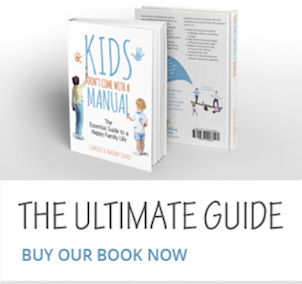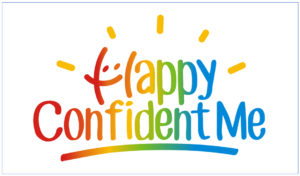As parents, we often wonder if our expectations of our children are right or if we’re expecting too much (and sometimes too little?) of them. Renowned author, Alfie Kohn, wrote an interesting article that raised some very interesting questions by discussing the ways in which parents and teachers can simultaneously overestimate and underestimate children and how this can affect their long-term development. ‘Do Our Expectations of Kids Aim Too High or Too Low?’ argues that ‘old school’ – i.e. more authoritarian parenting methods often fail to understand exactly what children are and are not capable of. This lack of understanding can have a significant impact on the way in which a child behaves and can also damage the connection we have with them.
In the following excerpt, Kohn argues that “In fact, we can go a step further: Our treatment of little children has an impact on how they develop. Imposing our will on them (on the basis of their immaturity) makes it less likely they’ll acquire the very social and moral dispositions whose absence we’ve used to justify such treatment. If we want them to consider the needs and viewpoints of others, we have to guide them gently to do so. If we want them to rely on cooperation rather than power, we have to set that example in how we deal with them. By contrast, offering rewards for compliance or punishments for noncompliance makes it increasingly difficult to promote other-oriented reasoning and empathy. Just because it takes time to reach these goals doesn’t mean we should head off in the wrong direction.”
This philosophy is based on the idea that it’s much more effective to ‘work with’ children rather simply telling them what to do, which Kohn describes as a ‘doing to’ approach that is usually employed by more authoritarian parents. This is because authoritarian parents tend to have high expectations of their kids, and many will use a system of rewards and punishment as a way of reinforcing good behaviour and stopping bad behaviour. But parents employing this approach overestimate a child’s capabilities by expecting them to behave in ways that they can’t yet be expected to understand i.e. always be respectful in public etc., but underestimate them in the sense that they believe that children are too young to be reasoned or ‘worked with’.
Studies show that parents who overestimate their child’s capabilities in this way are also more likely to get upset by what they perceive as their child’s ‘misbehaviour’, and are quicker to punish them as a result. In other words, they are essentially punishing their children for behaving like children. Kohn’s research also shows that many teachers have a tendency to overestimate a child’s academic capabilities, while at the same time underestimating them intellectually (this is actually quite complex and you can read more on this by reading the full article).
Kohn argues that it’s much better to use a ‘cooperative’ approach rather than a more authoritarian and submissive approach because it allows us to adapt our expectations to what our children are actually capable of. Parents who take a more cooperative approach, and who understand and accept their child’s limitations are more likely to respond to the same behaviour in a more calm and measured way, which is much more effective.
Other research on parenting styles from the most renowned expert on the matter, Diana Baumrind, agrees with Kohn that more authoritarian parents tend to be more demanding of their children (and probably too demanding as Kohn demonstrates). However, this research also shows that conversely, more laissez-faire parents tend not to have high enough expectations of their children and don’t demand enough of them, particularly when it comes to behaviour and dealing with frustration.
So what can we do to take a more ‘balanced’ approach and ensure that we are neither expecting too much or too little of our children? Here are four key tools that will enable you to become more aware of your children’s abilities and will allow you to adapt your expectations to their ‘real’ abilities:
- Help them self-evaluate: we often evaluate what our children do with positive statements such as “This is great!” or “I am so proud of you” or with negative statements such as “You could’ve done better on this” or “How could you make this mistake when we’ve already worked on this together?”. Even positive statements can make children feel that they are being constantly evaluated and as a result they will end up trying to do whatever they can to receive our approval. They might also stop participating in certain activities because they feel that ‘they’re not good enough’ and this is usually due to the high expectations that we have of them.So instead of evaluating them and making it about our expectations, it’s much more effective to teach them to self-evaluate. We can easily achieve this by not jumping in with our evaluations of their effort and performance and instead asking them questions such as “Are you happy with this result?”, or “Are you proud of yourself?”. In doing this, we gain valuable information as to their state of mind. These questions help to give us an indication of whether they want to improve and do better, or feel that things are too hard or are simply happy with the status quo.
Children are actually often more demanding with themselves than we’d expect, and we don’t allow them to express this when we constantly evaluate them. So in most cases, you won’t have to do anything because you can help them come up with ways of improving when they want and are ready to. But if you feel that they are not being demanding enough of themselves, you will be much better placed to do this once you’ve asked them the questions described above. In these cases, you may want to apply the advice in our book ‘Raising Confident Kids’.
- Mistakes as Opportunities for Learning: Give your children (what you feel are) age-appropriate tasks and allow them to make mistakes. And show them that they are an opportunity for learning by embracing the mistakes that you make. This will help them to learn new skills and gain confidence in their abilities while at the same time gaining valuable information as to what they are actually capable of (or not capable of).
- Asking Questions and Limited Choices: Engage them into ‘thinking mode’ by asking them questions i.e. “What are you supposed to do next?”, or ‘What can you do about this?’ and/or by offering them limited choices i.e. “Would you like to carry the shopping list or push the trolley when we go to the supermarket?”. This will allow you to see what they are, and are not, capable of.
- Initiate a Problem Solving session with them as soon as any issue/challenge arises as frequently as possible (from the age of three upwards), and involve them in helping to define what the consequences for their misbehaviour should be. This will encourage them to learn how to find solutions to their own problems and help them to understand the link between actions and consequences.













































